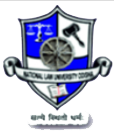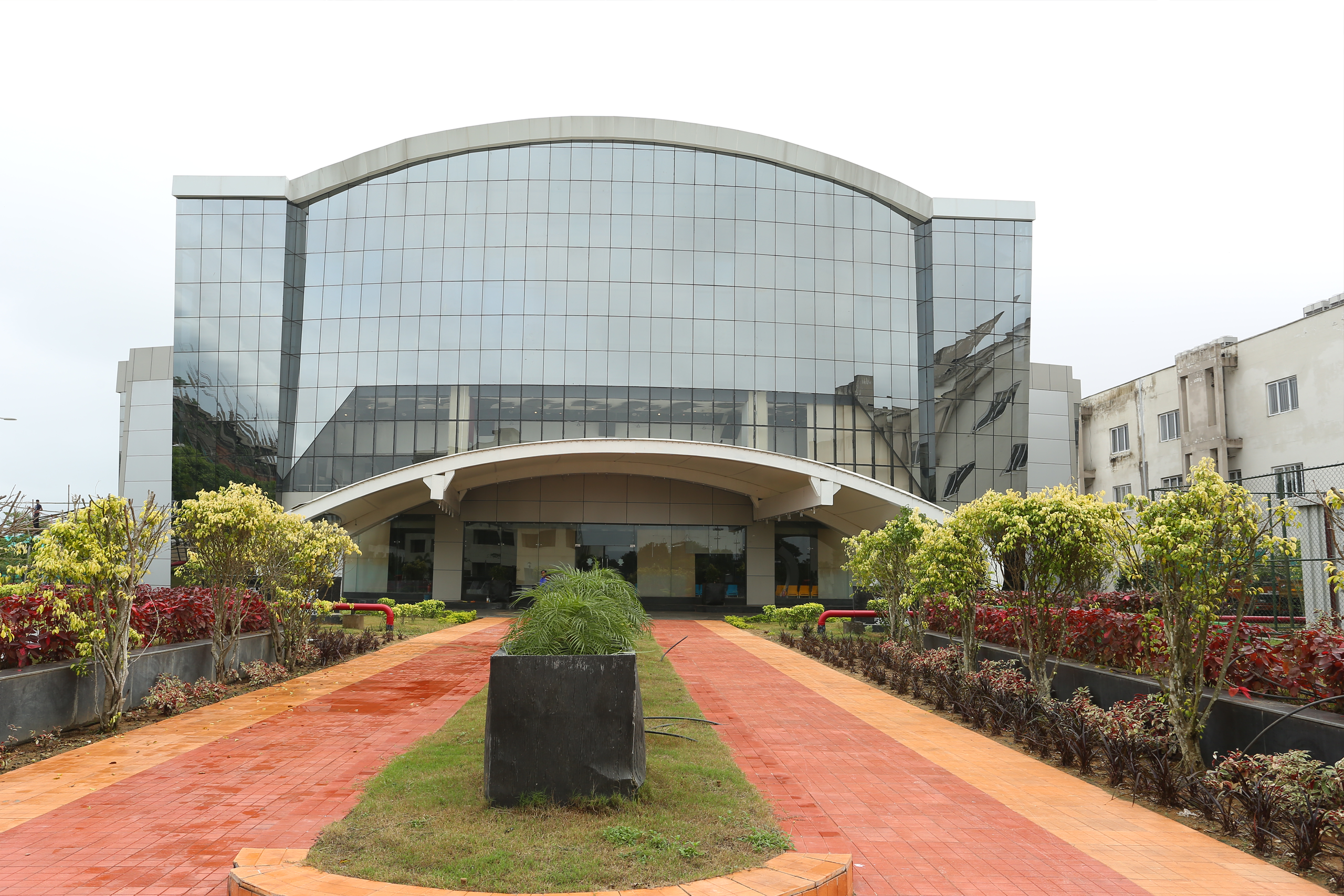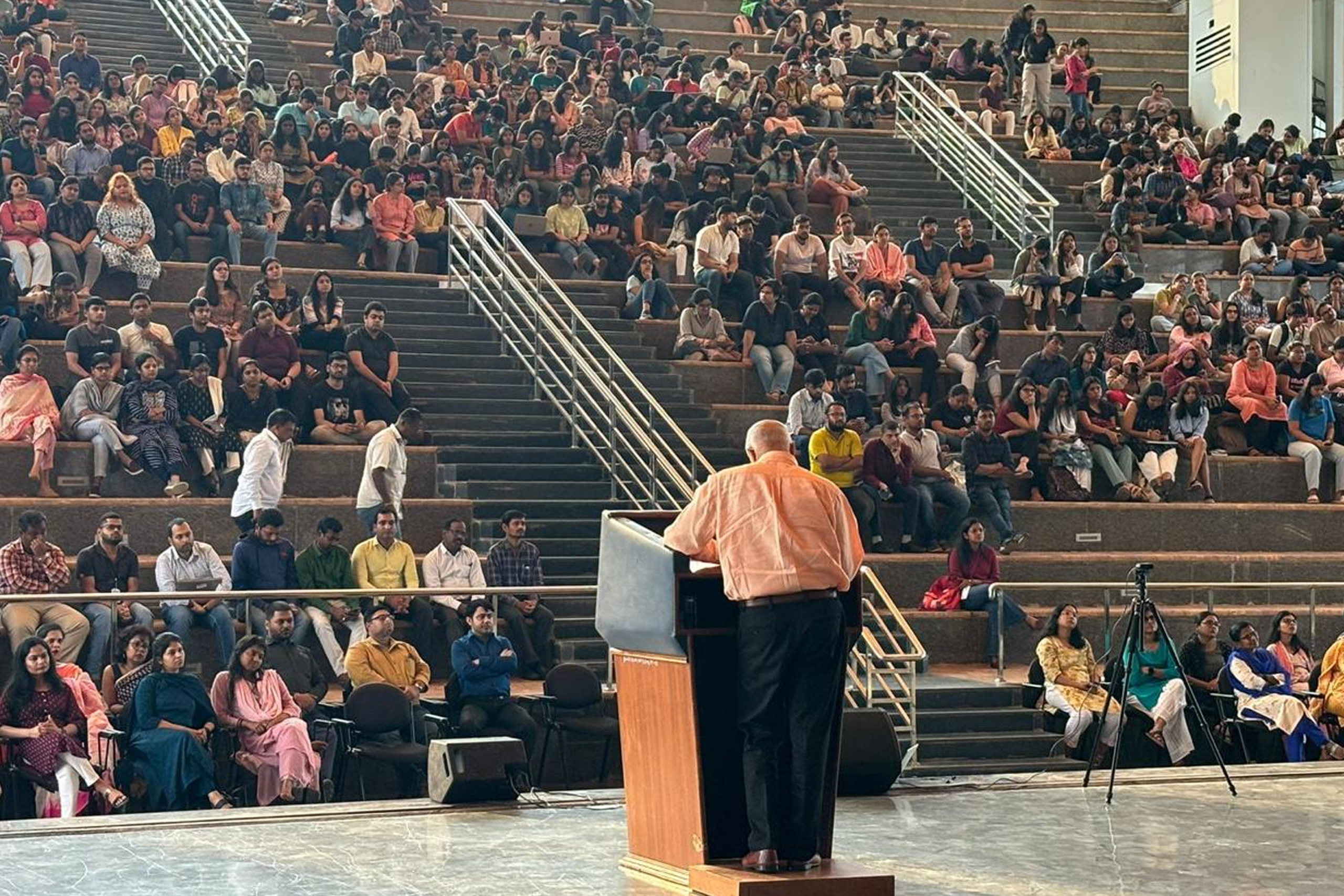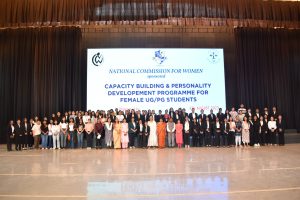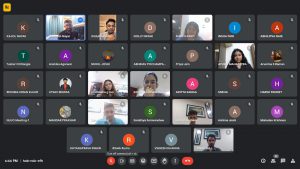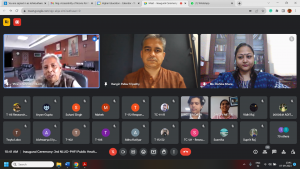News Category: News
“One-day Capacity Building Program – 4th August 2023.”
28 Sep 2023
On August 4, 2023, the Centre for Women and Law (CWL), in collaboration with the National Commission for Women (NCW), organised a one-day capacity development and personality enhancement program for female undergraduate and postgraduate students. This comprehensive program consisted of three sessions, each lasting one and a half hours, aimed at equipping young women with essential skills to excel in the professional world. The event attracted over a hundred students from various universities across the state.
The program commenced with an inaugural address by Professor Ved Kumari, the distinguished Vice-Chancellor of the National Law University, Odisha (NLUO). Her session was structured around three key areas: Communication, Stress Management, and Time Management. Her approach was highly interactive, focusing on eliciting responses from the participants to provide them with practical insights. She explored various modes, types, and techniques of communication. The session concluded with a call for positivity through smiles and laughter, exemplified by a laughter exercise.
The second session of the program was led by Dr. Arjyalopa Mishra, an Assistant Professor and the Internship and Placement Committee Co-Ordinator at NLUO. She focused on professional skills and career development, beginning with a discussion on self-assessment for career choices, CV drafting, and interview skills. Dr. Mishra emphasized the importance of aligning strengths and skills with career options and provided valuable guidance on acquiring professional skills through education, on-job training, and life experience.
In the latter part of the second session, Prof. Augustine Veliath, an Adjunct Professor at NLUO. He emphasized the importance of understanding the audience, structuring presentations effectively, and delivering them confidently. Prof. Veliath also provided insights into career guidance, highlighting the significance of goal setting, career assessment, networking, and mentorship for personal and professional growth.
In session led by Ms. Eluckiaa, delved into the digital landscape and cybersecurity. She discussed essential online platforms and tools, such as email services, productivity applications like Google Drive and Google Slides, and mobile payment applications like Paytm and Google Pay. She highlighted the pervasive presence of these platforms in contemporary digital interactions and the need to be aware of potential cyber threats. She provided insights into UPI and online payment methods, along with precautions against cybercrime and relevant legal provisions, such as IPC 354-D.
The program’s final segment featured an extensive statistical analysis presented by the Commissioner of Police, Mr. Saumendra K. Priyadarshi. The analysis focused on a comparative study between smartphone usage in India and the USA, emphasizing the significance of smartphones in contemporary society, particularly in light of the COVID-19 pandemic. In addressing cybercrime awareness and smartphone usage, the discussion highlighted the importance of verifying reliable sources in the age of knowledge accessibility. He stressed the significance of promptly reporting incidents to government helplines and acknowledged the unpredictability of future cyber threats due to the rapid evolution of AI.
The program left a lasting impact on the attendees, equipping them with valuable skills and knowledge for their journey into the professional world. It highlighted the dedication of CWL and NCW to empower and uplift young women in India.
“31ST Informal Discussion Group Session on ‘Navigating Law School Life and Placement Puzzle: Insights on the Journey and Stress Management’ held on September 2, 2023”
26 Sep 2023
31st Informal Discussion Group Session
Theme: Navigating Law School Life and Placement Puzzle: Insights on the Journey and Stress Management.<
Introduction:
On September 2, 2023, the Informal Discussion Group at NLU, Odisha, hosted a guest lecture featuring Divyansh Nayar (Associate, Trilegal) and Sridutt Mishra (Associate, Shardul Amarchand Mangaldas & Co.). The session took place online and was divided into two segments, each tailored to address specific aspects of a legal education journey and the challenges of the placement process.
Segment 1: Navigating Law School (For First and Second-Year Students):
The first segment aimed at first and second-year students focused on helping them navigate their early years in law school. Both guest speakers shared personal insights from their law school journeys, emphasizing the common dilemmas faced by first-year students. The speakers highlighted the importance of exploring college life and considering various career options. They explained that this exploration, even if it leads to career changes later on, can be incredibly beneficial in the long run.
The guest speakers advised students to engage in discussions with peers to understand their career goals and the essential skills required for their chosen fields. These conversations could expose students to a wide range of career opportunities and skill sets. The speakers recommended that students aim to narrow down their career choices by the end of their third year, allowing them to focus more specifically on internships and career development during their fourth and fifth years.
Furthermore, the guests discussed the significance of extracurricular activities, emphasizing that participation should not be solely for enhancing one’s CV but also for gaining valuable experiences. They encouraged students to approach these activities with the goal of skill development and gaining insightful experiences. The invaluable soft skills cultivated through extracurricular activities would not only enhance CVs but also benefit students’ overall careers.
Segment 2: Challenges in the Placement Process (For Other Students):
The second segment mirrored the first but focused on the challenges students might encounter during the placement process. The guest speakers shared their personal experiences, highlighting the stress and anxiety caused by the impact of COVID-19 on placements. They emphasized that taking stress wouldn’t be productive and suggested having a backup plan if the primary placement doesn’t materialize due to unforeseen circumstances.
The speakers recommended continuing to work at Chambers of Senior Advocates or Boutique Firms, even if one doesn’t secure a top-tier placement immediately after law school. They stressed the importance of prioritizing practice areas over teams and teams over firms when choosing internships. This approach allows students to develop specific skills that will benefit their future careers. However, they also noted that Tier-1 law firm internships can provide valuable exposure to the industry’s highest standards.
The guest speakers shared insights on effective internships, including working closely with Senior/Principal Associates or Partners instead of multiple tasks with junior associates. They emphasized the role of alumni connections in internships and advised students on how to streamline their CVs. They also clarified that lacking prior experience in a chosen practice area should not deter students from pursuing internships in that field.
Finally, the speakers discussed lateral hiring and its advantages over traditional hiring methods like Pre-Placement Offers and Campus placements. They reiterated that the placement journey is not always perfect and may have inconsistencies.
Conclusion:
The session ended with Ms. Shubhangini Rathore (Convenor, the Informal Discussion Group) expressing gratitude to the guests, the audience, faculty members, and the IDG members for their support and participation. The lecture provided valuable insights into navigating law school and the placement process, emphasizing adaptability, skill development, and the importance of proactive career planning.
“BW Legal World Ranking 2023: NLU Odisha is among the top 10 best Law Schools in India”
25 Sep 2023
No content available
“7th Annual Intra University Debating Championship (IUDC) of 2023 on September 16th and 17th, 2023”
21 Sep 2023
The 7th Annual Intra University Debating Championship (IUDC) of 2023 brought vibrant debates to life on September 16th and 17th, 2023, at the NLUO campus. This edition of the championship bore witness to lecture halls echoing with spirited voices and resonant table-claps, creating an electrifying atmosphere.
Organised by The Society For Law, Literature and Debates, the VI IUDC was graced by esteemed core adjudicators, including Kaushik Das, Darshit S. and Prajjawal Shrivastav. These debaters enjoy national and international recognition, making them stars on the debating circuit. To ensure an impeccable standard of judging and to enhance the championship’s credibility, invitations were extended to celebrated debaters from the Indian debating circuits. We were honoured to have Snigdha Priyadarshini, Vansh Aggarwal, and Varsha Venkat lend their expertise and discerning insights, thus infusing depth and authenticity into the adjudication process.
The competition featured four thrilling preliminary rounds, with only four teams securing a spot in the out rounds. The VI IUDC 2023 garnered widespread enthusiasm and wholehearted participation from students across all batches. An impressive total of 17 teams and 7 adjudicators engaged in fierce competition, all vying not only for the prestigious titles but also for the enticing cash prizes.
The Winners were the team comprising of Ujan Sarkar, Pratyush Singh and Aishanya Bakhsh and the Runners Up were the team consisting of Sourodeep Paul, Sahil Gandhir and Ayush Sharma. The Semi Finalists were the teams comprising Lakshya Haritwal, Ananya Sonakiya and Swarnava Sengupta and Kavya Jindal, Surbhi Goyal, and Aditya Kumar Mundhra. The Best Adjudicator was Chitrangda Saini and the Best Speaker was Pratyush Singh.
As we reflect on this memorable event, we anticipate even greater success and intellectual vigour in the years to come. We eagerly look forward to continued engagement in our shared pursuit of fostering meaningful discourse and honing the art of persuasive argumentation.



“Four Day Grand 3rd National Law University Odisha – Public Health Foundation of India Public Health Law National Virtual Moot Court Competition Concludes 7th to 10th September 2023”
11 Sep 2023
Centre for Public Health Law, National Law University Odisha in collaboration with the Public
Health foundation of India organised its 3rd edition of NLUO PHFI Public Health Law National Moot Court Competition from 7th ?o 10th ?September, 2023. The competition witnessed a participation of 90 teams from universities/colleges/law schools from across India. The moot proposition was based on public health law and its interaction with Intellectual Property Law.
Symbiosis Law School, Pune was adjudged the winner of the competition and Jindal Global Law School was adjudged as Runners up. Award for best memorial was bagged by IILM University Gurugram ?nd the Best Speaker award was given to Gaurangi Pande of Symbiosis Law School ,Pune. A total of Rs. 42,000/- in cash prizes will be awarded to the winners. The event was organised across four days that witnessed engaging arguments and stimulating competition. The judges for all the rounds of the competition included practising advocates, company legal counsels, law firm associates and partners, academicians and serving judges.
The valedictory ceremony and the moot court rounds witnessed dignitaries like Mr. Warren Burke, Senior Attorney, United States House of Representatives, Office of Legislative Counsel; Senior Supreme Advocate Anand Grover; Prof. Shridhar Kadam, Director, Indian Institute of Public Health; Prof. Ved Kumari, Vice Chancellor, NLUO and Dr. Rishika Khare, Co-Director, Centre for Public Health, NLUO.
The moot problem revolved around a complex and multifaceted issue at the intersection of public health, trade secrets, consumer safety, and regulatory authority. It highlights the challenges faced by Apoxia Enterprises Limited, a company that introduced a popular instant noodle product called Wahgi in a rapidly developing country, Etinia, as well as the subsequent allegations against it of health-related concerns and regulatory actions taken by the government.
This case prompts a profound exploration of the balance between a company’s right to protect its trade secrets and the public’s right to information regarding the safety of consumer products. It also delves into the authority and responsibilities of government bodies in ensuring food safety and regulating the market. Additionally, it raises questions about corporate liability for potential public health issues and the role of the judiciary in adjudicating these complex and contentious matters.
“29th August 2023 | Legal Awareness session for housekeeping staff of NLUO”
30 Aug 2023
The Legal Services Committee (“LSC“) of National Law University, Odisha (“NLUO“), has organized a comprehensive session for the blue-collar workers of the University. The primary goal of the session is to educate them about the central and state government schemes available at their disposal. The highlights of this session were two specific schemes: Sukanya Samriddhi Yojana and Biju Swasthya Kalyan Yojana. The session was conducted in Odia to ensure a full understanding of the schemes for the workers. LSC also addressed queries from the workers related to the same. This session helped them avail the benefits of these schemes if they meet the eligibility criteria. The turnout for the session was excellent, with almost every member of the housekeeping staff attending and enjoying it. They were pleased with the way this session was conducted. Thus, we succeeded in our aim, i.e., to impart valuable legal awareness to the blue-collar workers of NLUO.?
By: Legal Services Committee?ational Law University, Odisha
Date: 29th August 2023 (Tuesday),?ime: 12 PM to 1:45 PM.
Venue:?eminar Hall, Academic Block
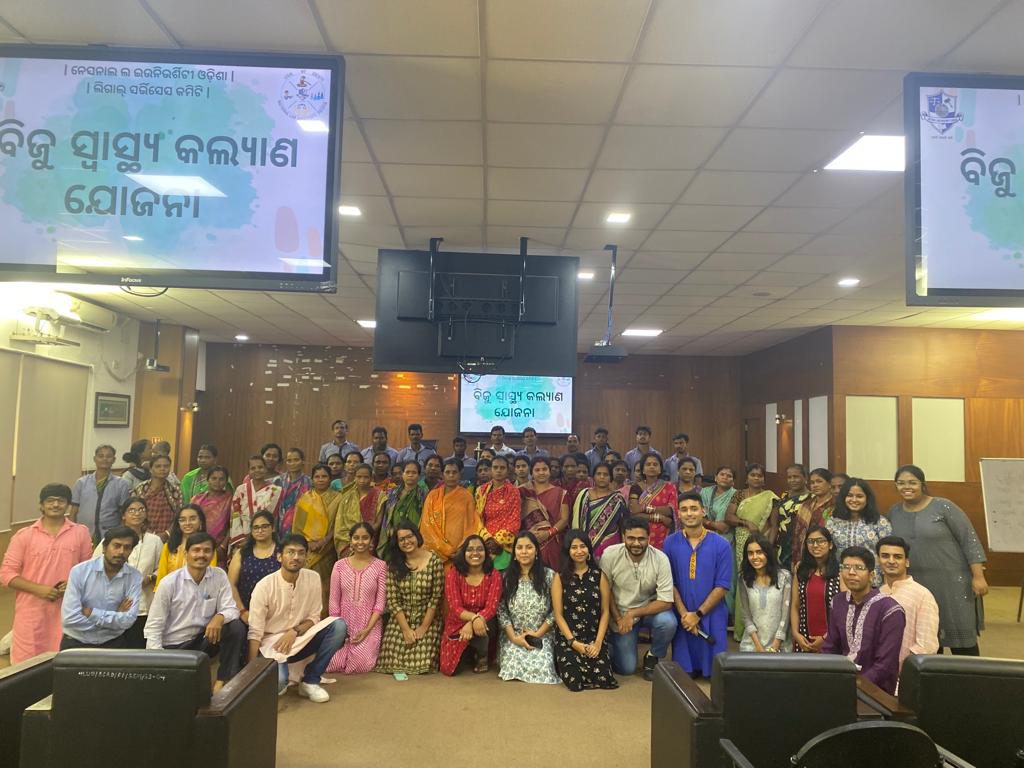
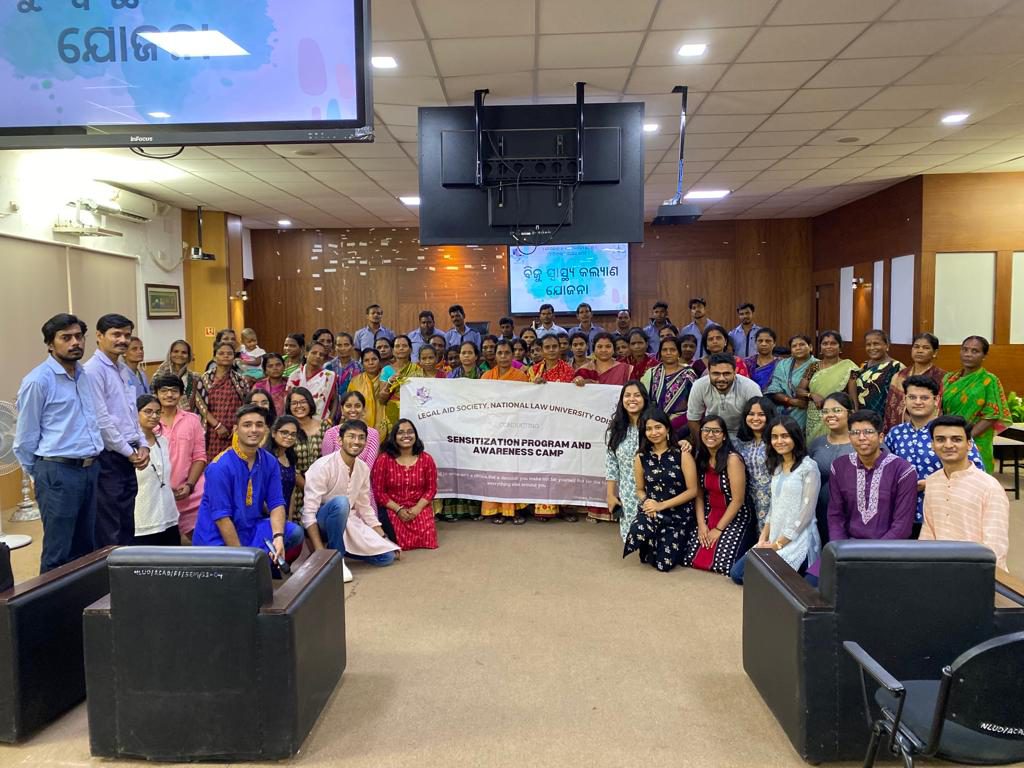
“1st NLUO – GAJE National Negotiation Competition, conducted on 12th and 13th of August, 2023.”
16 Aug 2023
PRESS RELEASE
The 1st NLUO – GAJE National Negotiation Competition was successfully conducted on 12th and 13th of August, 2023, leaving a mark of excellence in the realm of negotiation and dispute resolution. The event is the first ever Negotiation Competition conducted by an institution in Odisha. With participation from 28 esteemed law universities across India, including NLUs and private institutions, the event showcased the talent and dedication of the legal fraternity.
Hosted by National Law University Odisha (NLUO), Cuttack, the competition aligned seamlessly with NLUO’s vision of advancing learning, research, and knowledge dissemination in the field of law. Prof. Ved Kumari, the Vice Chancellor of NLUO, graced the opening ceremony with her insightful inaugural address, emphasizing the pivotal role of academic competitions in shaping well-rounded legal professionals.
The event’s successful execution owes much to the support of sponsors such as GAJE (Global Alliance for Justice Education), High Court of Orissa, Live Law (Media Partner), EMW Genxt, AIIMAS, and Indian Dispute Resolution Centre. Their contributions fortified the competition’s stature and underscored its significance.
The preliminary rounds on Day 1 witnessed spirited performances by all participating teams, with NUSRL Ranchi, NLIU Bhopal, SLS Pune, and NMIMS Navi Mumbai emerging as the top contenders. Day 2 unfolded with intense semi-final rounds and culminated in an exhilarating finale between NLIU, Bhopal, and SLS, Pune.
The coveted titles were claimed by the following:
Winners: NLIU, Bhopal
Runners Up: SLS, Pune
Best Negotiating Pair: SLS, Pune
The winners were awarded a cash prize of Rs. 15,000/- and the Runners Up were awarded a cash prize of Rs. 10,000. The Best Negotiating Pair were given two internship slots with the Indian Dispute Resolution Centre.
The closing ceremony, streamed on NLUO’s Official YouTube Page, was graced by the esteemed presence of Mr. Akash Kumar, Faculty Advisor of the ADR Board of NLUO. The event’s successful conclusion was marked by a vote of thanks, and the results were unveiled by the distinguished panel of judges presiding over the finals.
The 1st GAJE-NLUO Negotiation Competition has not only provided a competitive platform but has also fostered a valuable exchange of ideas and skills among future legal luminaries. The event’s impact reverberates in the legal community, inspiring students to harness their negotiation prowess and contribute to the advancement of justice education.
“National Online Consultation on implementation of 100% smoke-free public places by removing the DSA/DSR| 29th July 2023”
03 Aug 2023
National Online Consultation on implementation of 100% smoke-free public places by removing the DSA/DSR
by
National Law University Odisha
On July 29, 2023 (Saturday) from 05:30 pm to 07:00pm
?/span>
National Law University of Odisha as a part of its Project on Tobacco Control Initiatives organised an online national consultation to receive expert opinion for advancing effective tobacco control in India. The title of the consultation was ‘on?/span>Implementation of 100% smoke-free public places by removing the DSA/DSR’ on July29, 2023 (Saturday) from 05:30 pm to 07:00pm.
The consultation session aims was to?provide an overview of the impact of passive smoking on individuals, challenges in implementing 100% smoke-free public places by removing DSA/DSR, discussion on exiting national policy/plan/law which support and advocate for smoke-free public places and case studies of countries with effective policies on smoke-free public places. The session acquainted all the relevant stakeholders of the urgent need to implement 100% smoke-free public places.
The National online consultation brought together about 71 participants, representing various departments such as dignitaries from Ministry of Health & Family Welfare, Ministry of Law and Justice, Ministry of Human Resources Development, police academy, various commissions, law practitioner from supreme court of India, State Nodal Officers Tobacco Control, The Union and various NGOs. The Consultation aim was to sensitise identified national and state stakeholders, including senior government officials, enforcement agencies, hotels association and national experts, on implementation of 100% smoke-free public places by removing the DSA/DSR.
The resource persons for the program included Mr. Ashish Kumar Pandey, deputy director, tobacco control department, The Union, New York, Shri Ranjit Singh, Advocate Supreme Court and Mr. Deepak Mishra, Executive Director, SEEDS, Delhi. The consultation was started with project introduction followed by brief introduction about topic. In the first part of session tobacco law experts Shri Ranjit Singh oriented the audience on need of 100% smoke free public places and how removing of DSA/DSR is related to basic rights of individual, he also addressed the audience on negative impact of second and third hand smoking. After the introductory session on consultation topic Shri Ranjit Singh moderated Panel discussion on Implementing 100% smoke free public places by removing DSA/DSR. Mr. Ashish Kumar Pandey and Mr. Deepak Mishra discussed various aspect of topic in detail. Followed by panel discussion platform was set for open discussion which generated detailed discussion on various aspect related to topic.
Stronger policy formulation and effective law enforcement can play a crucial role in reducing tobacco consumption and improving public health outcomes. Overall, the online national consultation on?implementation of 100% smoke-free public places by removing the DSA/DSR’ was a positive step towards addressing this critical public health issue and promoting effective policy and enforcement measures to reduce tobacco use.
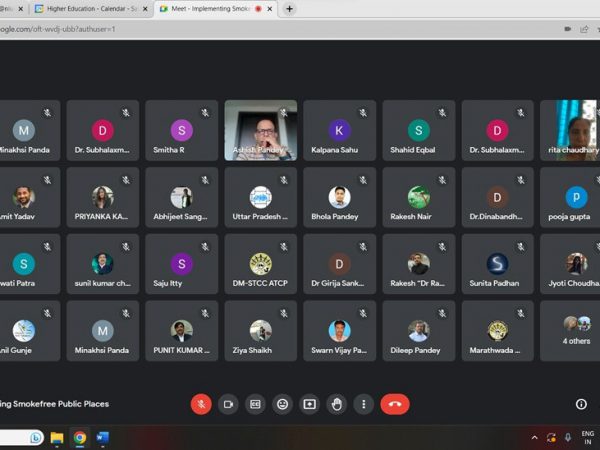
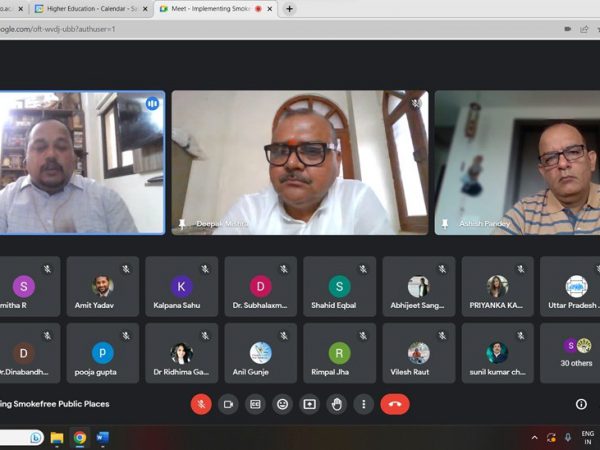
?/p>
“Address by The Hon’ble President of India Smt. Droupadi Murmu at The Convocation of The National Law University Cuttack: July 26, 2023”
31 Jul 2023
No content available
“Tender Call Notice for Supply of Furniture and Fixtures for the new Library at NLUO, Cuttack.”
20 Jul 2023
No content available
